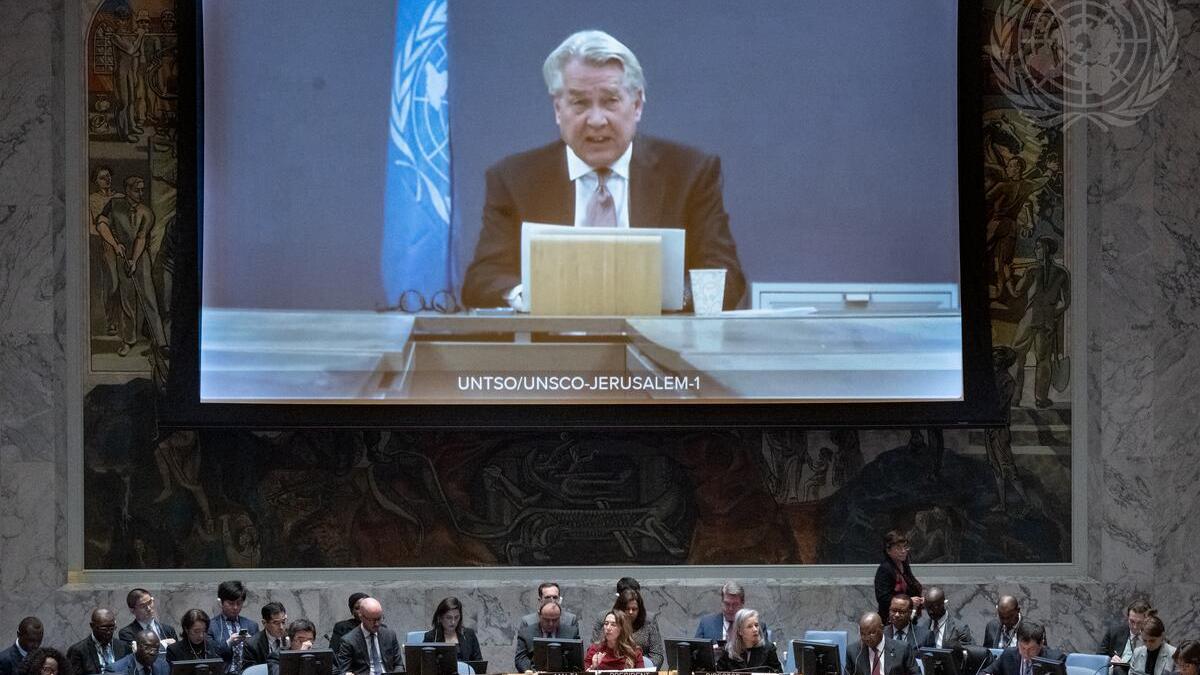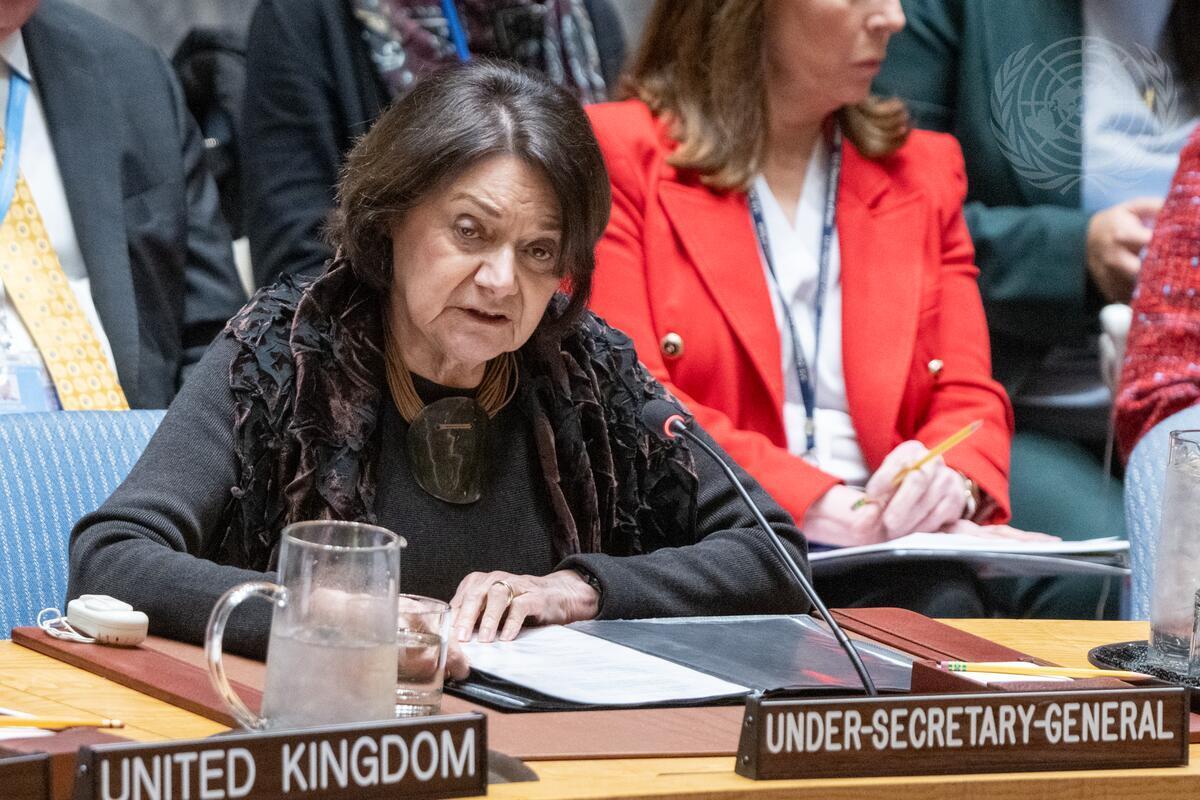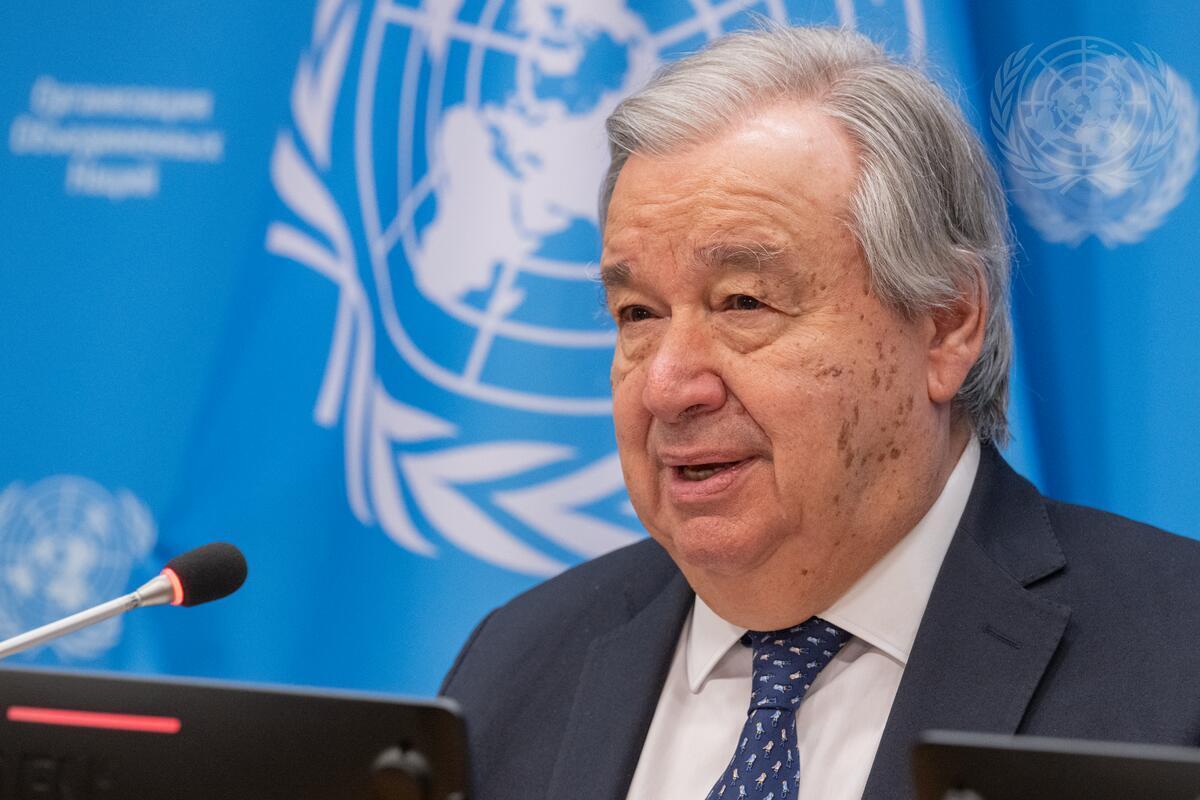Mister President, Excellencies, Members of the Security Council,
Following the Secretary-General’s statement, I will focus my briefing on dynamics in the occupied West Bank, the region and where we go from here in the context of the unfolding conflict between Israel and Palestinian militants in Gaza.
Before doing so, I wish to join the Secretary-General in acknowledging the efforts of Qatar, Egypt and the United States in facilitating an agreement that has secured the release of 60 Israeli hostages from Gaza so far, resulted in a six-day pause in fighting, which allowed the UN to scale-up humanitarian aid, as well as led to the release of 180 Palestinian prisoners and detainees from Israeli custody.
Such respite from the weeks of horror is long overdue.
Mr. President,
While the world’s attention has been rightly focused on the devastating violence and outbreak of hostilities since 7 October, we are also witnessing heightened tensions, intensive violence and widespread movement restrictions across the occupied West Bank.
The period has been marked by some of the most intensive Israeli operations in the West Bank since the Second Intifada, involving the use of improvised explosive devices by armed Palestinians and drone strikes by Israeli security forces. Tulkarem and Jenin have seen the largest-scale Israeli operations, including inside refugee camps.
Settler violence has also continued at high levels driving mounting tensions and increased violence, as well as Palestinian displacement.
In all, 154 Palestinians, including 37 children, have been killed this reporting period in the West Bank – nearly all of them in the context of Israeli operations, many involving armed exchanges with Palestinians. Two Palestinians have been killed by Israeli settlers.
Three Israelis, including two security forces, were killed by Palestinians in attacks.
Mister President,
Amid the surging violence and extensive Israeli movement restrictions, the Palestinian Authority’s (PA) long-standing fiscal crisis has worsened significantly, as economic activity in the West Bank has ground to a halt and the economy in Gaza collapsed.
The 2 November decision by the Israeli Security Cabinet to deduct “all funds designated for the Gaza Strip” from the clearance revenues Israel transfers to the PA further weakened revenues, impacting many critical services and the payment of public sector salaries, including to security forces.
The situation is boiling and getting worse rapidly. In the months before the war, I warned regularly in this Council that more must be done to help stabilize the situation in the West Bank – that is more the case now than everbefore.
Mister President,
A few words on regional dynamics and my continued concern about the risk for further escalation.
Turning to Israel’s north, while tensions along the Blue Line have calmed in recent days, the situation remains volatile, as it was throughout the reporting period. Approximately 100,000 Israelis remain displaced from communities in the north and some 50,000 Lebanese are displaced from southern areas near the Blue Line.
On the Golan, firing from Syria towards the Israeli-occupied Golan and strikes by Israel against targets in Syria took place.
From farther afield, missiles and drones were also reportedly launched from Yemen toward Israel, most were intercepted, however a drone strike claimed by the Houthis hit a school in Eilat on 9 November. A ship affiliated to an Israeli businessman was seized by Houthi forces in the Red Sea on 19 November.
Mister President,
The dizzying pace of events and staggering needs on the ground make it difficult to see beyond the most immediate challenges. Nevertheless, we must begin work on what comes next. Without an effective political and security framework for when the fighting ceases, it will be impossible to sustainably end the violence and shape a new reality.
Over the coming weeks and months, the international community must increase their engagements with Israel, the PA and regional partners on constructive and practical political solutions.
While much is unknown about how this war will end, some absolutes are clear.
- Acts of terror like those Hamas and others committed against Israel on October 7th must never be allowed to happen again and Palestinians in Gaza must never ever again experience the horrors they are enduring.
- Gaza is and must remain an integral part of a future Palestinian State, with both Gaza and the West Bank under one Palestinian authority.
- The only viable path is one that leads to an end to the occupation and to the realization of a two-State solution, in line with UN resolutions, previous agreements and international law.
Our past efforts have certainly not been enough - a message that resonates in particular today as we mark the international Day of Solidarity with the Palestinian People. There must be a new and different approach, or we are doomed to return to the path of managing a conflict that clearly cannot be managed.
Thank you.






